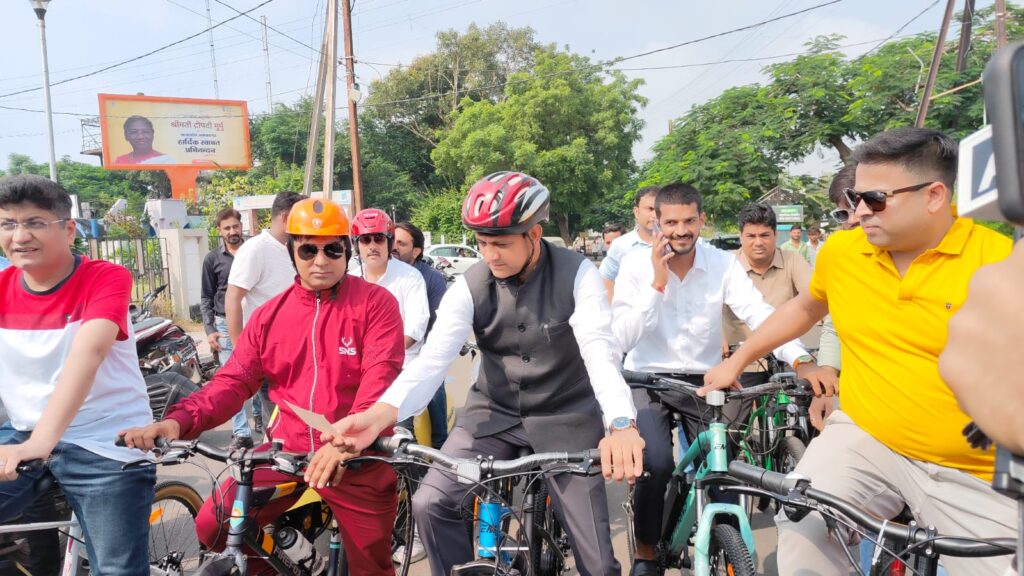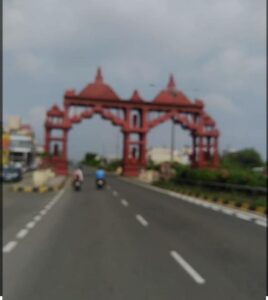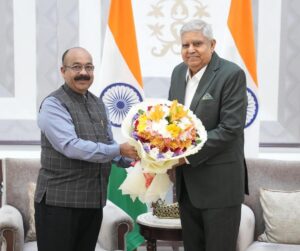Heading..Indore leads the way: ‘No Car Day’ drives Green Revolution
2 min read
K K Jha
Indore: Known for being the cleanest city in India for seven consecutive years, Indore has once again demonstrated its commitment to sustainable living by observing “No Car Day” on September 22. This eco-friendly initiative urged residents to leave their cars at home and opt for greener, more sustainable modes of transportation. By doing so, Indore aimed to tackle traffic congestion, improve air quality, and promote a lifestyle that prioritizes environmental consciousness.
Setting an example, Indore Collector Ashish Singh commuted to his office on an e-bike, while Mayor Pushyamitra Bhargava pedaled his way from his residence in Radio Colony to attend the ‘Open and Canvas’ program at Shivaji Vatika. Their actions underscored the city’s unified commitment to this cause, which was further evident on major roads like the Bus Rapid Transit System (BRTS) corridor, where car traffic significantly decreased. Public transportation, e-bikes, bicycles, and e-rickshaws dominated the streets, showcasing the city’s willingness to embrace sustainable alternatives.
Mayor Pushyamitra Bhargava emphasized the importance of collective action for environmental conservation, urging citizens to support the “No Car Day” campaign not just as a one-time effort but as a long-term lifestyle change. He called on Indoreans to make choices that reduce pollution and improve air quality, making the city a model of sustainable urban living.
Adding vibrancy to the day, a range of activities including street plays, open-air band performances, flash mobs, and painting sessions were organized at key locations like Navlakha, Shivaji Vatika, Palasia, MR-9, Rasoma Square, and Vijay Nagar Square. These events captured the spirit of the day, attracting people from all walks of life to participate and reaffirm their commitment to a cleaner, greener Indore.
The impact of “No Car Day” was not just symbolic but tangible. According to traffic data collected from 13 major intersections, the city experienced an impressive 30% reduction in vehicle count, with the Lantern junction showing the most significant improvement, recording an average traffic reduction of 54% throughout the day. This clearly demonstrated the residents’ willingness to adapt and contribute to reducing traffic congestion and pollution.
This year’s “No Car Day” followed the remarkable success of the previous year’s effort, which resulted in a 12% reduction in cars on the road, a fuel saving of over 80,000 liters, an 18% drop in air pollution, and a 5.5% decrease in sulfur monoxide emissions. Such results have proven that when cities unite for a cause, the benefits can be substantial and far-reaching.
Indore’s proactive approach to environmental conservation has set a benchmark for other cities to emulate. The city’s dedication to sustainability not only alleviates congestion but also makes a significant contribution to combating air pollution, making Indore a true leader in urban environmental initiatives. With “No Car Day” becoming an annual success, Indore continues to set an inspiring example of how collective efforts can drive meaningful change, proving that the road to a greener future is not just a possibility but a reality in action





